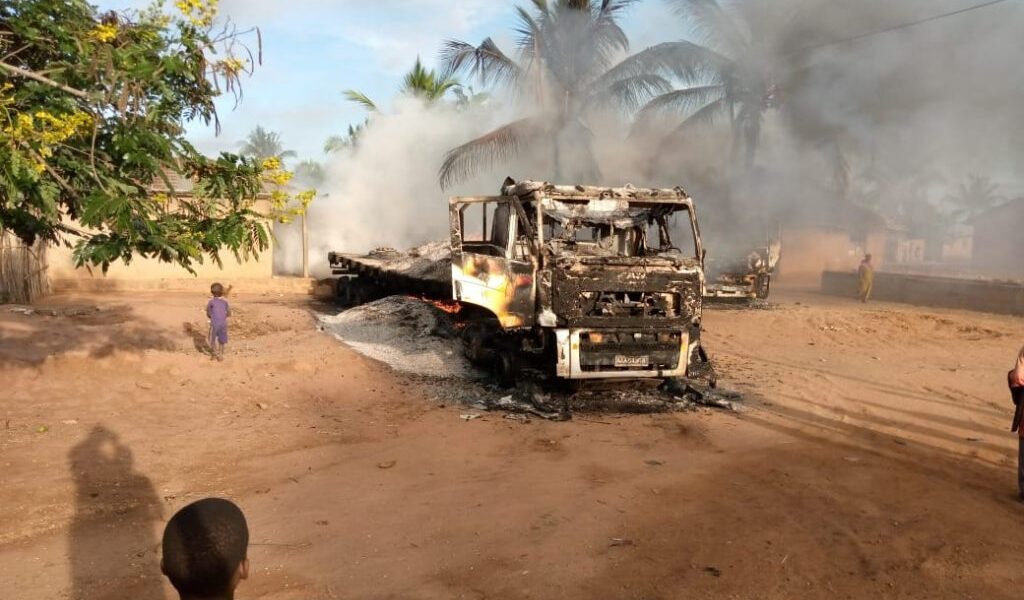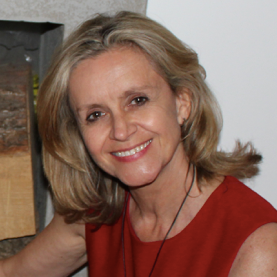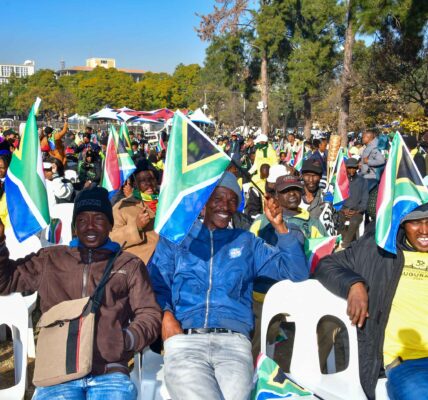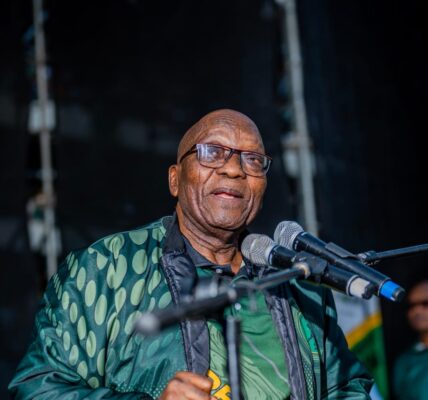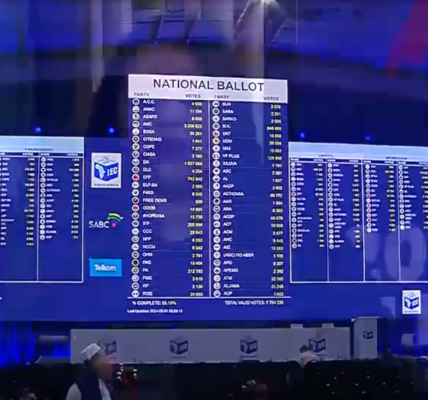Despite Surge in Violence in Mozambique, $50B LNG Projects Likely to Proceed with Rwandan Troop Protection – Dr Joseph Hanlon
There has been an escalation of violence by insurgents in northern Mozambique’s Cabo Delgado province in recent months. In a major attack, rebels ambushed soldiers from the Southern African Development Community (SADC) mission in Mozambique (SAMIM) near the town of Macomia, damaging vehicles but causing no reported casualties. This surge comes as the SADC forces, deemed ineffective by some, are preparing to withdraw in July after being deployed since December 2021. South African President, Cyril Ramaphosa has however announced the extension of the South African National Defence Force’s (SANDF) deployment in the Cabo Delgado province until December 31, 2024. In an interview, Mozambique specialist Dr. Joseph Hanlon stated that despite the renewed violence, he expects the major $20 billion LNG project by TotalEnergies and $30 billion project by ExxonMobil to proceed. He believes the companies feel the Rwandan forces can protect the areas housing the lucrative offshore gas fields and infrastructure for liquefying and exporting natural gas. Dr Hanlon said the Rwandan and Tanzanian troops are “very effective,” unlike the SADC forces that Mozambican President Filipe Nyusi was not keen on hosting. With the foreign military protection, the $50 billion in LNG investments appear able to move forward in an “enclave development” model. – Linda van Tilburg
Key edited quotes from the interview:
Rwandan Troops “Very Effective” in Mozambique, Unlike SADC Forces
Guerrilla wars go up and down. This war has been ongoing for nearly a decade. After that period, they used the rainy season to regroup, paused during Ramadan, and then resumed. Even though Rwandan troops are controlling two districts, they seem to have significant freedom of movement in the rest of Cabo Delgado province.”
I don’t believe the upcoming withdrawal of the SADC forces has caused this increase in violence. The SADC forces haven’t been very effective, nor has the Mozambican army. The SADC forces are leaving because their new mission is in Rwanda. They’ve said, ‘We are in Rwanda to fight against the M23 rebels who are supported by Rwanda. And we don’t want to be in Mozambique, where we’re recognizing Rwanda as an ally if we’re going to fight against them in the DRC.’ So, they’ve decided to pull out of Mozambique to fight against Rwanda in the DRC.”
The Rwandan forces were specifically brought in by President Nyusi, who negotiated that himself. The SADC forces were more or less imposed on Mozambique by South Africa. Mozambique doesn’t really like South Africa, so they never wanted the SADC forces anyway, and they weren’t very useful in any case. So, they’re not sorry to see them go.
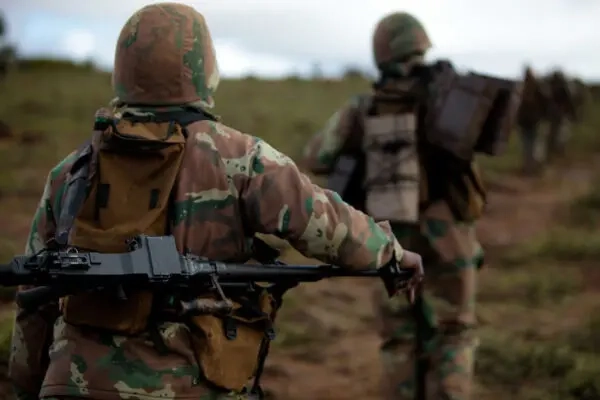
Confidence in Rwandan forces to protect the Total Energies and ExxonMobile LNG projects
It appears that the LNG projects will proceed, given Rwanda’s ability to secure the two districts with gas reserves. This will likely result in an enclave development, under military protection. The gas, located offshore but near the coast, is piped to the coast and then heavily compressed into liquefied natural gas. This is then shipped by large tanker ships worldwide, particularly to Asia. It seems that TotalEnergies and ExxonMobil are confident in the protection provided by the Rwandan troops.
Exploration ceased four years ago. The pause was partly to organise the Rwandan forces and partly due to a shift in perspective. Initially, they stated they wouldn’t continue unless the war ceased. However, they’ve now changed their stance, expressing willingness to export the gas if they can be protected. As such, I believe the conflict will continue indefinitely. I also believe the gas projects will proceed, as the Rwandans and Tanzanians will likely establish a security zone, similar to the Iraq green zone.
This is the scenario we’re likely to witness. The war will persist and possibly expand into the southern and western provinces, namely Nampula and Niassa. However, it seems the Frelimo elite, benefiting from the war and the mineral wealth, are content for this situation to continue indefinitely.

ISIS is using Mozambique for publicity
I believe ISIS is leveraging Mozambique for publicity. The primary support they’ve provided to the insurgents was in enhancing their media skills. Consequently, when an attack occurs, such as the one in Macomia, it’s broadcast on the ISIS website within hours. This allows ISIS, to some extent, to claim this as part of their realm. However, in reality, it’s a very localised war, and the commanders are all local individuals from this region of Cabo Delgado. Essentially, this is a very local insurgency.
A million ghost voters on the voters’ roll for elections on 9 October
Frelimo, the liberation movement, achieved independence from Portugal 50 years ago. The 25th of April marked the 50th anniversary of the revolution in Portugal, and Frelimo has retained power ever since. However, Frelimo’s popularity has declined over time, leading to allegations of election distortion and fraud. Voter registration is ongoing, and as someone who works on the elections, I’ve observed the presence of at least a million ‘ghost voters’. These are non-existent individuals who are nonetheless registered on the voter rolls and will presumably be permitted to vote for Frelimo. This could significantly influence the election outcome.
Frelimo is aligned to international capital, not to Russia and China
They are aligned with international capital. The crux of the matter is that Mozambique is increasingly reverting to a colonial state, albeit with a different structure, but a colony to international capital nonetheless. This allows mining companies to operate freely, provided a substantial amount of money goes to the elite. It’s essentially colonisation through corruption. They’ve simply purchased the leadership, granting them the freedom to do as they please.
Local people won’t benefit from the LNG projects, it will enrich the ruling elite
I foresee the conflict continuing for an indefinite period. I do believe the gas projects will proceed, as they will likely utilise Rwanda and Tanzania forces to establish a security zone, akin to the Iraq green zone. This is the scenario I anticipate. The war will persist and possibly expand into the southern and western provinces, namely Nampula and Niassa. However, it appears the Frelimo elite, benefiting from the war and the mineral wealth, are content for this situation to continue indefinitely. The gas will primarily be exported to Asia, particularly Japan and likely China. Eni, an Italian gas company, is also involved. Some of the gas will be shipped to Britain. Given the global market for liquefied natural gas and Britain’s substantial imports of it, it’s plausible that they could import from Mozambique.
Present-day conflict started in exactly the same place as the independence war
One must consider that this is a Muslim area. Therefore, if you’re seeking an organisation that revolves around religion, much like how churches are Christian organisations and NATO and Brazil have significant Christian support. In this Muslim area, some militant preachers have argued that Sharia law is a form of socialism, as it advocates for equality and wealth sharing. They suggest that if God were to enforce Sharia law, then the youth would benefit from the wealth derived from gas, rubies, graphite, and so on. They argue that Islamic practices could provide greater economic benefits to young people. This discussion largely revolves around the interpretation of Islamic law or Sharia law, and whether it stands for honesty among other things. The ultimate goal, they say, is a law that promotes wealth distribution.
Interestingly, during the independence movement in the 1960s, the same message was propagated. The message that Islamists are promoting now mirrors the one from the 1960s. The war has erupted in the same location, Cabo Delgado. One of the towns with the most conflict is Palma, where the first shots of the liberation war were fired. It’s a new generation of young people echoing the same message from all those years ago.

